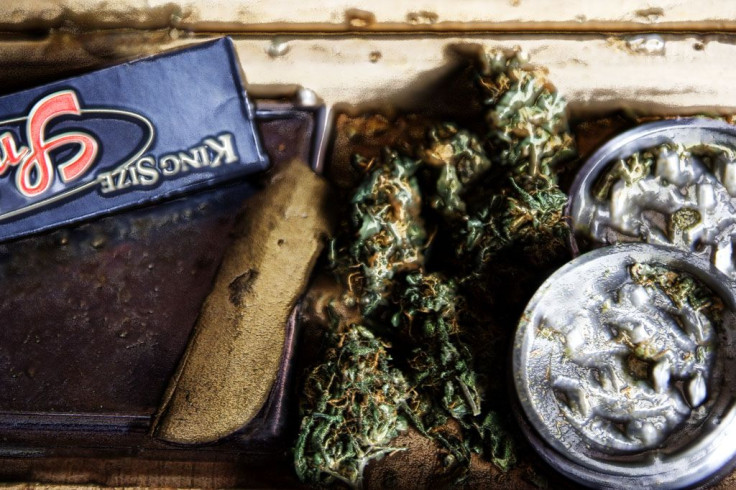New DEA Chief Chuck Rosenberg Says Marijuana Is 'Probably Not' As Dangerous As Heroin

The new leader of the Drug Enforcement Administration, Chuck Rosenberg, was quoted Tuesday saying heroin is probably more dangerous than marijuana. Does this mean the dawn of a new lighter-handed policy on persecuting marijuana-related crimes? It’s hard to tell, but many already believe that Rosenberg is a big departure from his rigid predecessor.
Up until now, Rosenberg’s stance on drug reform has remained somewhat hard to decipher, and while this statement does seem to be an improvement over the past, it is still not the outright marijuana endorsement many are interpreting it to be.
Speaking Tuesday morning on a conference call, Rosenberg said, “If you want me to say that marijuana’s not dangerous, I’m not going to say that because I think it is. Do I think it’s as dangerous as heroin? Probably not. I’m not an expert.”
Though Rosenberg tried to atone for this emission by adding that he is “not an expert,” many are hopeful that this may be an indication of a more lax policy toward the still-controversial drug. Rosenberg also added that marijuana will not be a priority under his leadership, but that does not mean that he has told his agents not to go after marijuana-related crime at all.
Rosenberg also added to his statement, saying, “Let me say it this way: I’d rather be in a car accident going 30 miles an hour than 60 miles an hour, but I’d prefer not to be in a car accident at all.”
Nice try Rosenberg, but the damage has already been done. Many are already discussing that Rosenberg has already diverged in a big way from former DEA leader Michele Leonhart, who took a much more active stance against cannabis. She had previously been quoted, saying that all comparisons of pot to crack cocaine or heroin are “subjective” and that marijuana is an “insidious” drug.
Already, pro-legalization advocates are supporting Rosenberg’s choice of words, hoping this may be the first baby step in debating marijuana’s status as Schedule 1, the identification that equates its severity to heroin.
“This is not a matter of opinion,” said Dan Riffle, the director of federal policies at the pro-legalization Marijuana Policy Project to US News. “It’s far less harmful than heroin and it’s encouraging that the DEA is finally willing to recognize that.” Riffle supported this statement by saying that thousands of deaths result each year from opioid overdose, while none are a product of marijuana which is less likely to lead to addiction.
Similarly, Rep. Steve Cohen (D-Tenn.) known to disapprove outspokenly of Leonhart, feels Rosenberg’s quick comment speaks volumes. “That’s a great improvement over the previous administrator who was incapable of distinguishing heroin from marijuana,” he said. “The real question that one day will be asked and correctly answered is: Is marijuana a more dangerous drug than alcohol?”
Rosenberg recently replaced Leonhart after she was forced to resign in May due to criticism over her handling of a sex scandal involving some of her agents. Leonhart was a known roadblock in the movement toward legalization, speaking openly against President Obama’s claim that alcohol is more dangerous than marijuana, while also criticizing White House staffers for playing softball with known drug policy reformers.
On the contrary, the new DEA leader has told DEA branches across the country to “focus their efforts and resources of the DEA on the most important cases in their jurisdiction.” He includes that “by and large, what they are telling me is that most important cases in their jurisdiction are opioids and heroin.”
Does that mean marijuana will be completely put on the backburner? Rosenberg says no. “I’ve also told them we are not going to shy away from doing marijuana cases where appropriate,” he added. “We want to do the biggest and most important cases there are.”
For the DEA, Rosenberg says, those important cases tend to involve heroin, opioids, meth, and cocaine, mostly in that order; marijuana, on the other hand, is usually last.
But when it comes to the DEA abiding by state law despite the federal illegality of marijuana, Rosenberg still says he will support the laws of the federal government. “If it’s marijuana, that’s illegal under federal law and I’ve told them not to shy from that,” he said. “More to come on that.”
As for marijuana changing its status as Schedule 1 to something deemed less harmful, it’s not time to get hopes up just yet. Recent steps forward in removing the debatable stigma attached to marijuana include District Judge Kimberly J. Mueller debating the constitutionality of marijuana’s status as Schedule 1. Though this was the first attempt to reexamine marijuana’s assignment, Mueller ultimately did not feel it was in her jurisdiction to make an argument for the drug and things did not progress much from there. Like Mueller’s decision, Rosenberg is not taking any definitive stances toward changing the status of cannabis in American lives. To see what happens next, we have no choice but to sit and wait.



























